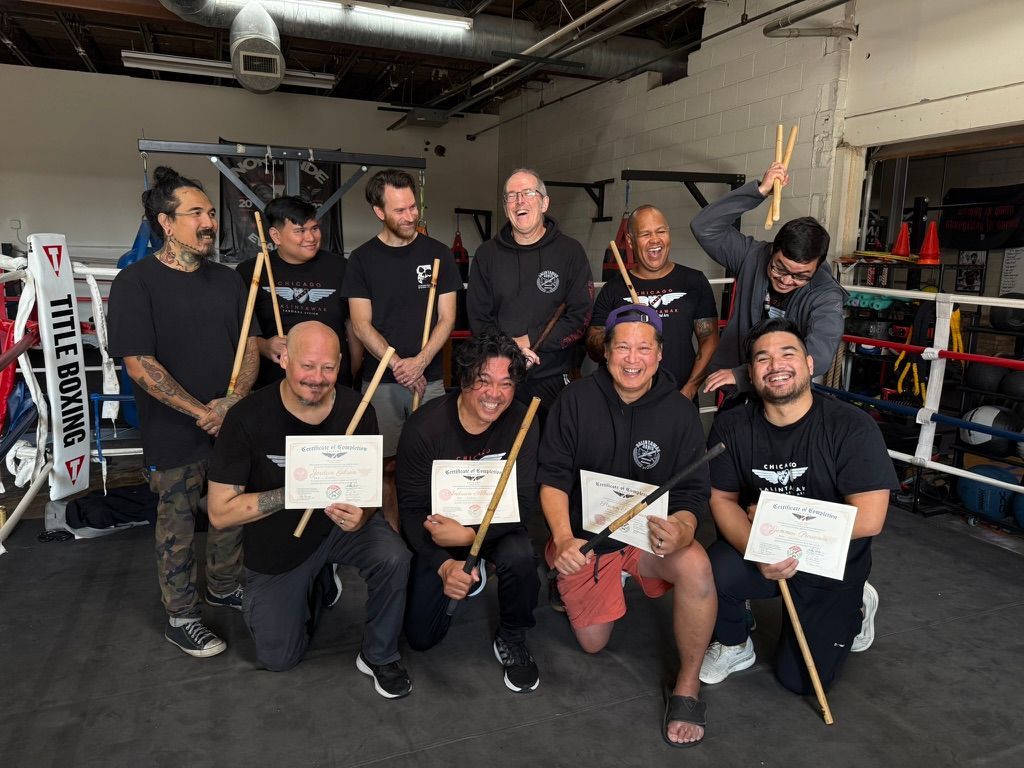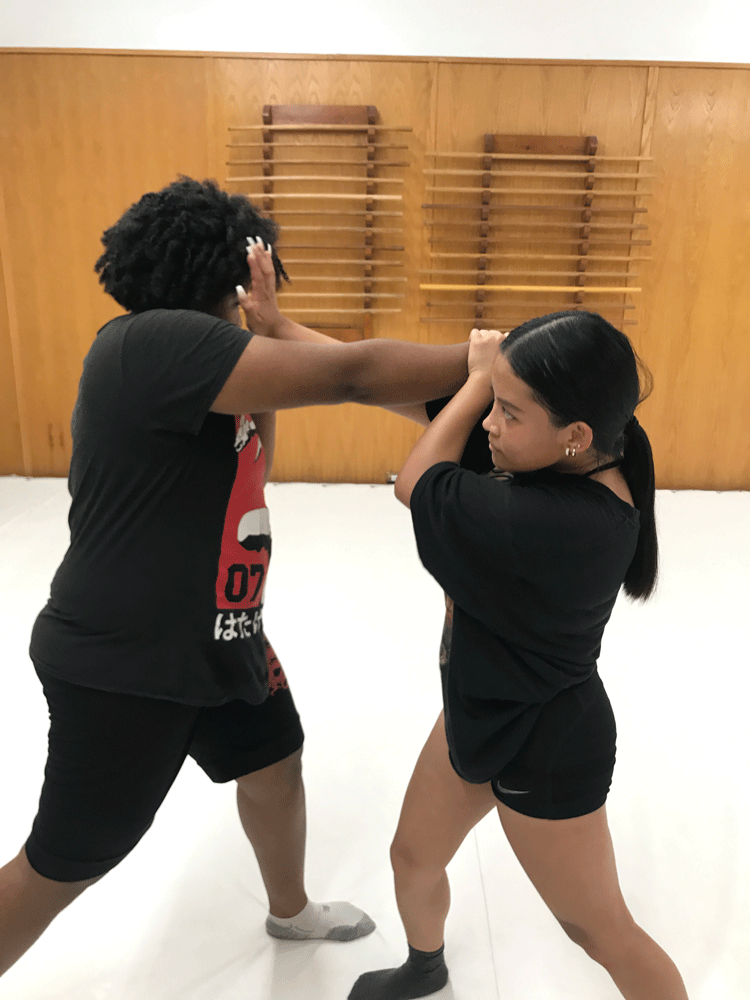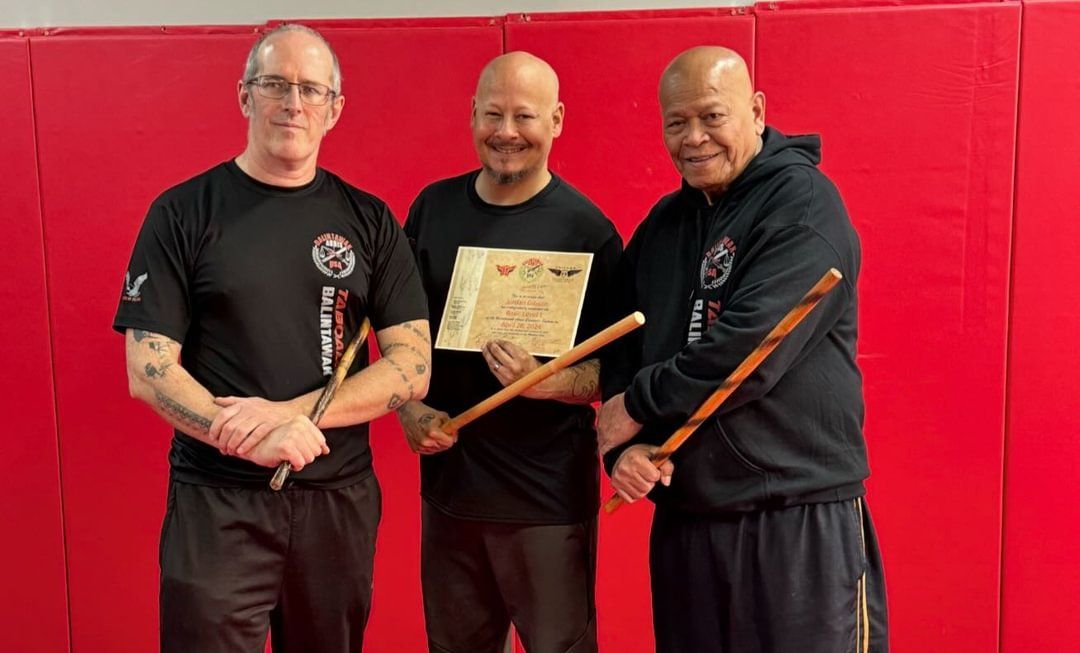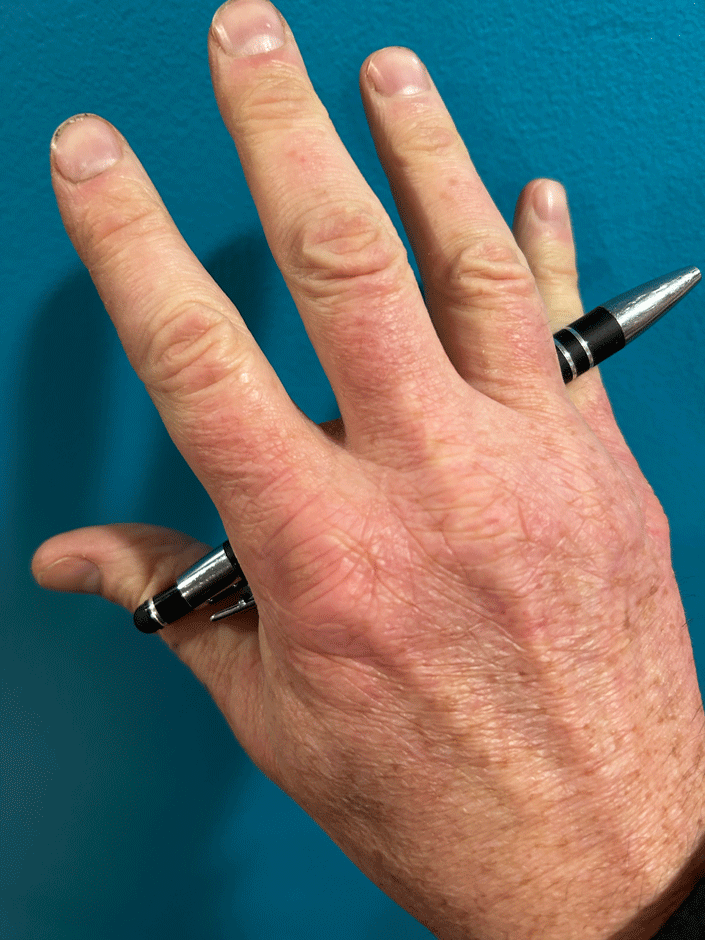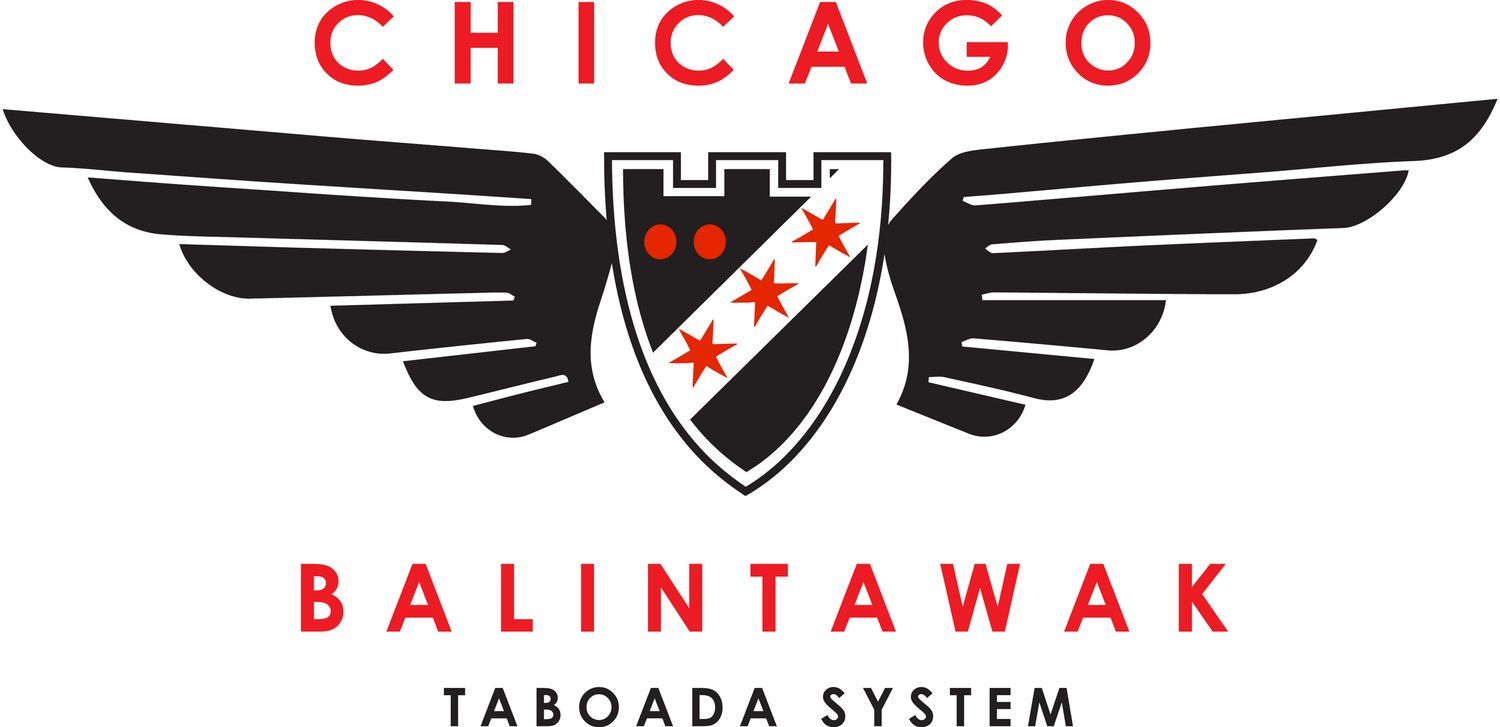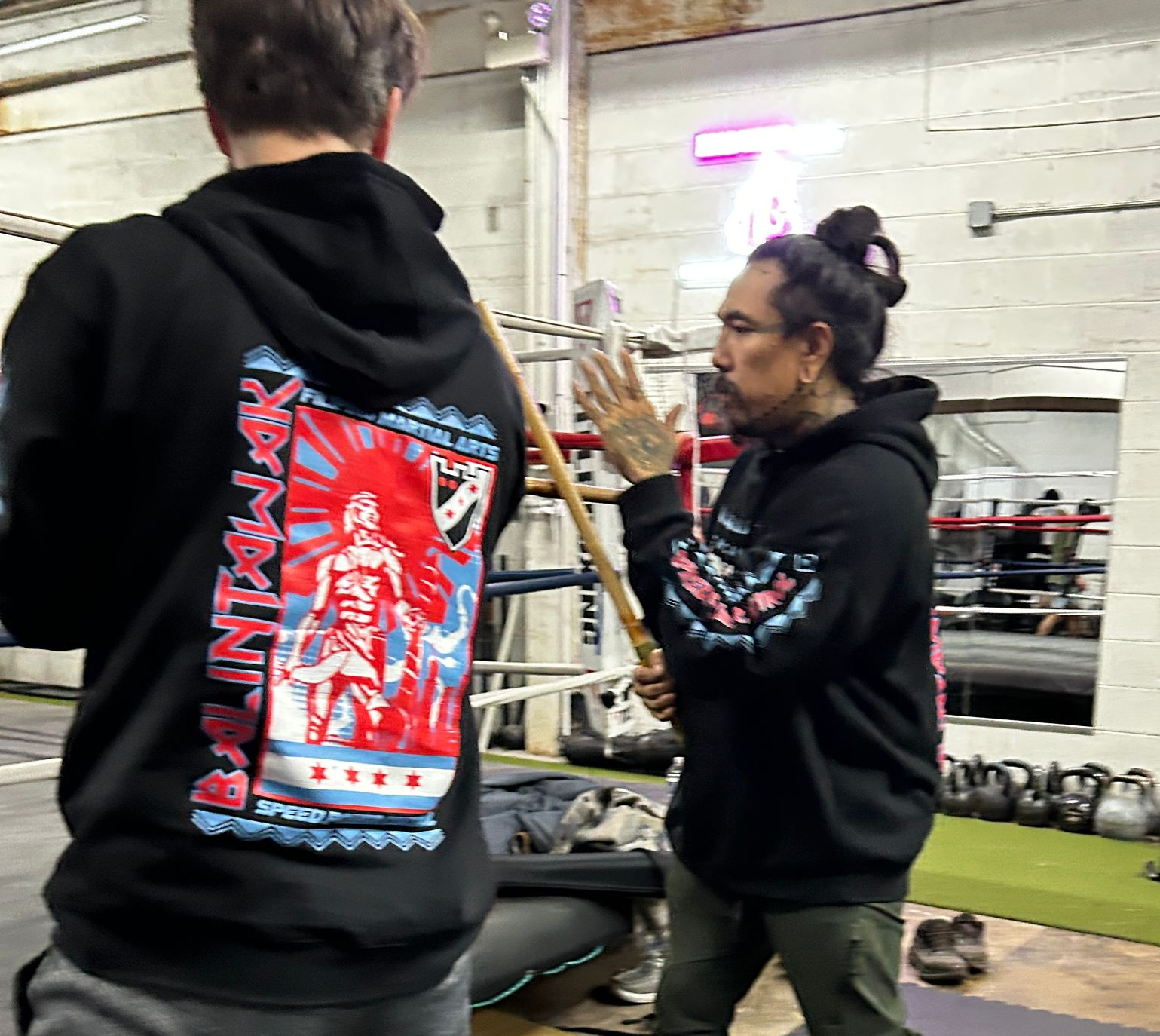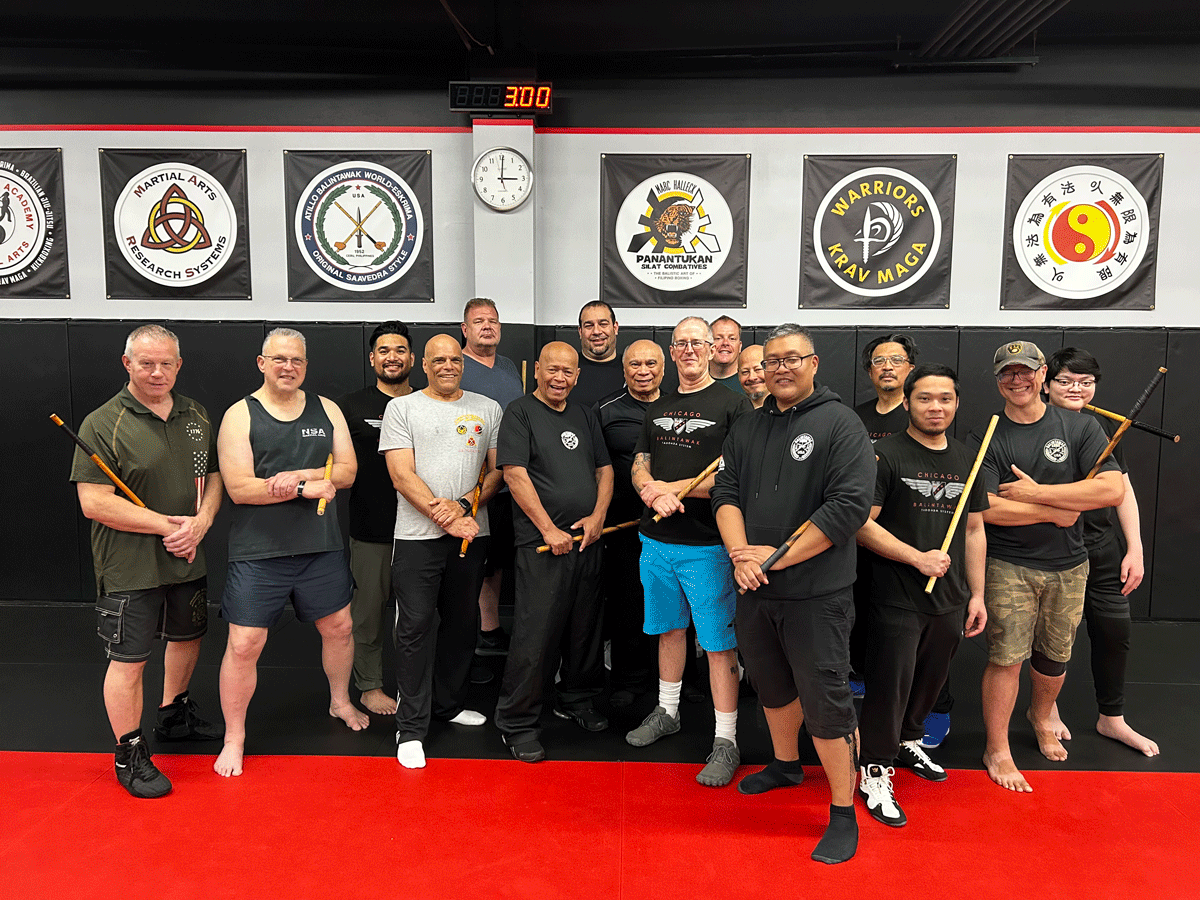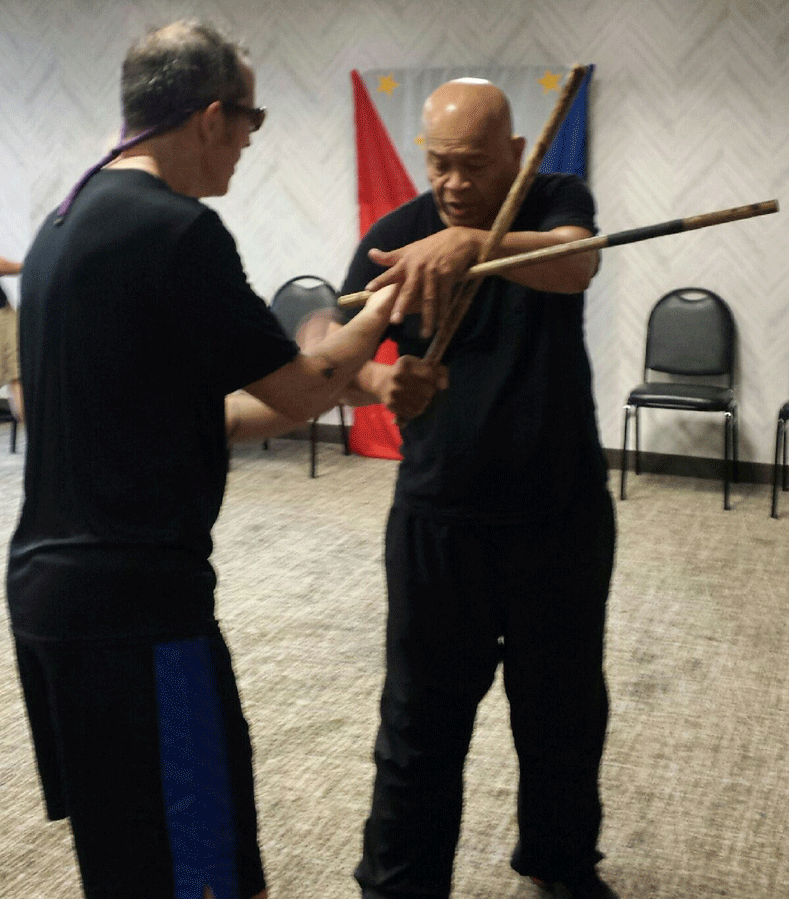6 Ways Filipino Martial Arts Helps You De-Stress and Refocus
Swing a Stick, Clear Your Head: Why Filipino Martial Arts Is the Stress Reset You Didn’t Know You Needed
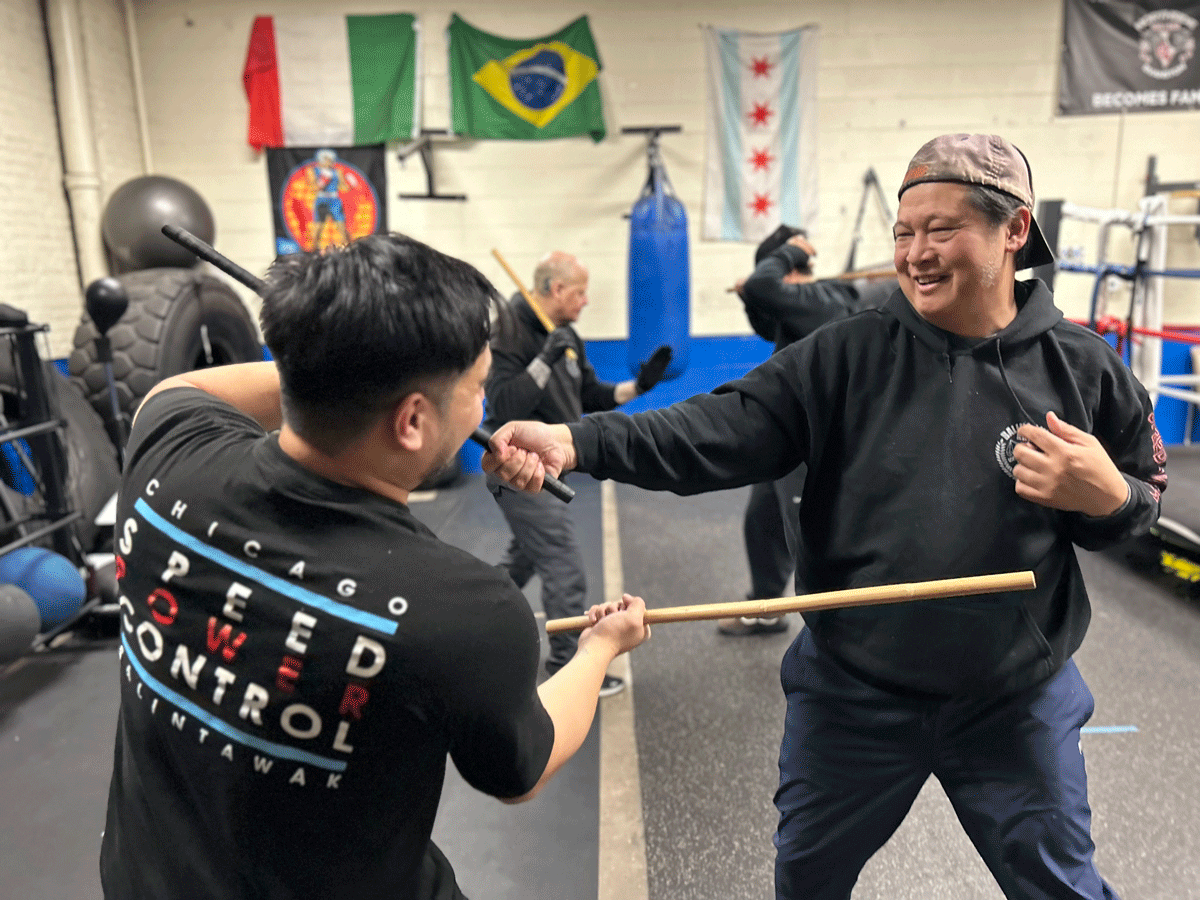
Whether you’re grinding at a desk in downtown Chicago, troubleshooting systems in Skokie, or simply trying to be present with your family and your own goals — the pressure adds up. And most people don’t have a healthy way to hit the reset button.
So here’s a wild but solid solution:
Hit something with a stick.
I’m talking about Filipino Martial Arts (FMA) — specifically Balintawak Eskrima, a stick-based system that helps you shake off the mental cobwebs, get grounded in your body, and reset your nervous system after a long, overstimulating week.
You don’t have to be a fighter.
You just have to be ready to swing, sweat, and show up.
Let me break down how it works.
1. You Hit Stuff. And It Feels Amazing.
It’s Saturday morning. You grab your stick, shake off the sleep, and step into class. You start to move. Maybe you're tired. Maybe you're a little tense.
Then —
WHACK!
WHACK!
THUMP! THUD!
There’s something weirdly healing about hitting the heavy bag. Not because you're angry, but because you're human. You’ve been holding stress in your shoulders, your back, your gut — and this gives it a place to go.
Unlike punching air or jogging on a treadmill, this kind of physical expression has texture. A stick hitting a bag gives instant feedback. You feel the force. You hear it. You let the week fall out of your muscles with every hit.
2. It Loosens Your Body Where You Didn’t Know You Were Tight
Balintawak’s movement drills are designed to unlock mobility.
After a week of sitting, scrolling, typing, commuting — your spine and hips need a wake-up call. Our drills keep you flowing: torso twisting, pivots, shoulder and head movement, swings, and strikes. You’re not just exercising — you're recalibrating.
Your body goes from “work zombie” to realigned and alive. Think of it like foam rolling with a purpose — except you’re learning how to defend yourself at the same time.
3. It Forces You Into the Present Moment
Work stress thrives on
what-ifs and
not-yets.
Balintawak training forces you to respond to what’s actually in front of you.
When someone swings a weapon (in a controlled, safe drill), your brain doesn’t have time to wander to unread emails or awkward Slack messages. You’re here. Now. Eyes focused. Body reactive.
Some people call it
“No Mind.” or "Flow State" You’re not frozen — you’re flowing. It’s active presence.
And funny enough?
That practice — being fully in the moment — stays with you.
Monday’s problems don’t hit as hard when you’ve trained to breathe under pressure and deal with things one strike at a time.
4. You Sweat Out the Week
According to Healthline, sweating improves your mood, boosts your energy, and helps regulate your stress hormones. We make it a goal to sweat in every class.
Whether it’s from fast-paced partner drills, stick-sparring, or our cardio stick games (yes, games — it’s still fun), we get that full-body “I did something real” workout.
It’s not punishment.
It’s play with purpose.
And it leaves you feeling lighter, clearer, and more awake than any iced coffee could.
5. Cuentada Trains You for Life’s Pushback
“Cuentada” is a Filipino word that,to us, means counter-for-counter. In Balintawak, this isn’t just about fighting — it’s about anticipating what happens next and adapting.
You train to read people’s movement patterns. You learn to respond instead of react.
ou get used to the idea that when something comes at you, you have an answer — because you’ve practiced finding one, over and over.
That skill translates. Whether you’re managing a team, raising kids, or just navigating daily stress, cuentada helps you stay calm, creative, and capable.
6. New Environment, New Energy
Sometimes, just getting out of your usual environment is enough to change your mindset. When you train FMA, you’re not in your office, your car, or your daily routine. You’re on the mat. With real people. From all walks of life.
You connect. You learn. You laugh.
You get perspective — from people outside your bubble.
And when you step back into your life afterward, things feel just a little more manageable.
Reset Your Week. Come Hit Stuff.
You don’t need to be a martial arts master. You don’t need to be in perfect shape.
You just need to be ready to try something different.
Our Chicago Balintawak classes meet you where you’re at — whether you're a 33-year-old data guy who wants to feel alive again, or a 63-year-old engineer finally checking off “learn FMA” from your bucket list.
Come get sweaty. Swing a stick.
Laugh. Learn. Reset.
You’ll leave class feeling clearer, stronger, and more ready for whatever Monday throws at you.
Want to try it out?
Click here to grab your first class pass →
We train in Evanston, IL. Saturday mornings and Wednesday evenings.
One stick, one hour, one less stressful life.
#StickTherapy #ChicagoBalintawak #MartialArtsForLife #ResetWithEskirma
